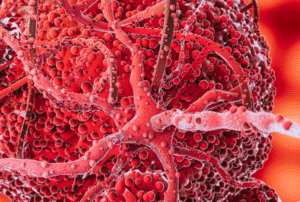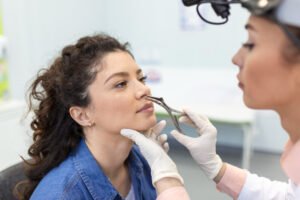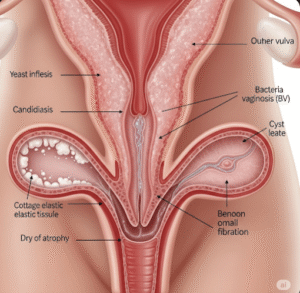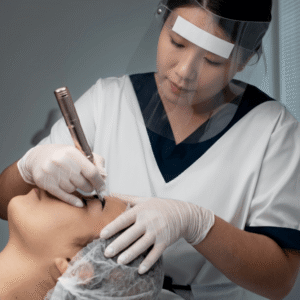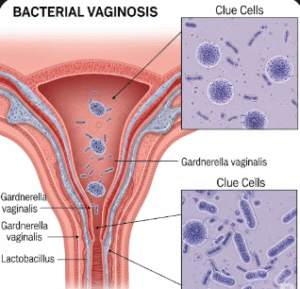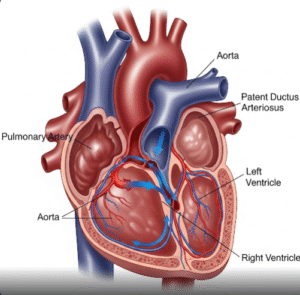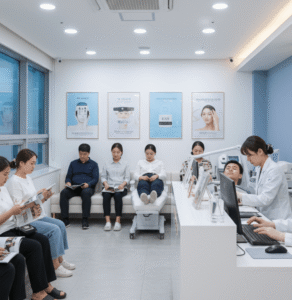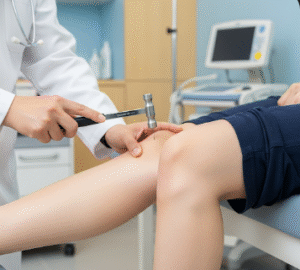Overview
Amenorrhoea is the absence of menstruation in women of reproductive age. It can be classified as primary (when a woman has never had a period by age 15–16) or secondary (when menstruation stops for three months or more in women who previously had regular cycles). While occasional missed periods can be normal, persistent amenorrhoea may indicate underlying hormonal, structural, or systemic issues. In Korea, advanced gynecological clinics and hospitals provide comprehensive evaluation, diagnosis, and treatment options to restore menstrual health and address underlying causes effectively.
Key Facts
▶ Prevalence: Affects a significant portion of women worldwide, especially during adolescence and perimenopause.
▶ Types: Primary amenorrhoea (never menstruated) and secondary amenorrhoea (cessation after regular periods).
▶ Common Symptoms: Absence of menstruation, infertility, hot flashes, vaginal dryness, and hair growth changes.
▶ Causes: Hormonal imbalances, structural abnormalities, stress, excessive exercise, or medical conditions.
▶ Treatment Options in Korea: Hormonal therapy, lifestyle interventions, surgical procedures, and fertility-focused treatments.
What is Amenorrhoea?
Amenorrhoea is defined as the absence of menstrual bleeding. It is a symptom rather than a disease itself and may indicate a variety of health issues.
▶ Primary Amenorrhoea: No menstruation by age 15–16 with normal secondary sexual characteristics or by 13 if there are no secondary sexual characteristics.
▶ Secondary Amenorrhoea: Cessation of periods for three or more consecutive months in women who previously had regular cycles.
Note: Amenorrhoea can have physical, hormonal, or psychological origins and may affect fertility if untreated.
What Symptoms Are Related to Amenorrhoea?
▶ Absence of Menstruation: The primary and most obvious symptom.
▶ Infertility: Difficulty conceiving due to lack of ovulation.
▶ Hot Flashes and Night Sweats: Often linked to hormonal imbalances.
▶ Vaginal Dryness: Reduced estrogen levels can cause dryness and discomfort.
▶ Excessive Hair Growth or Hair Loss: Indicative of androgen imbalance or polycystic ovary syndrome (PCOS).
▶ Weight Changes: Rapid weight gain or loss may contribute to menstrual irregularities.
▶ Fatigue and Mood Swings: Hormonal fluctuations affecting energy and emotional well-being.
What Causes / Possible Causes
Amenorrhoea can result from multiple factors, often overlapping:
▶ Hormonal Imbalances: Thyroid disorders, pituitary dysfunction, or ovarian insufficiency.
▶ Polycystic Ovary Syndrome (PCOS): A common endocrine disorder leading to irregular or absent periods.
▶ Excessive Exercise or Low Body Weight: Can disrupt hormonal regulation and ovulation.
▶ Stress and Psychological Factors: Emotional stress affecting hypothalamic-pituitary-ovarian axis.
▶ Structural Abnormalities: Congenital malformations of the uterus, vagina, or ovaries.
▶ Medications: Certain hormonal contraceptives, antipsychotics, or chemotherapy drugs.
▶ Chronic Illnesses: Diabetes, celiac disease, or autoimmune conditions can contribute.
▶ Premature Ovarian Failure or Menopause: Early loss of ovarian function leading to cessation of periods.
When Should I See My Doctor?
▶ Primary Amenorrhoea: No period by age 15–16 or by 13 without secondary sexual characteristics.
▶ Secondary Amenorrhoea: Absence of periods for three or more months in previously menstruating women.
▶ Severe Symptoms: Hot flashes, unexplained weight loss, excessive hair growth, or vaginal dryness.
▶ Fertility Concerns: Difficulty conceiving due to absent ovulation.
▶ Underlying Conditions: Suspected hormonal, structural, or systemic medical issues.
Tip: Early consultation ensures proper diagnosis, prevents complications, and improves fertility outcomes when desired.
Care and Treatment
Management of amenorrhoea depends on the underlying cause and may include:
▶ Lifestyle Modifications: Balanced diet, weight management, and stress reduction.
▶ Exercise Adjustments: Avoid excessive physical activity that disrupts menstrual cycles.
▶ Hormonal Therapy: Estrogen-progestin therapy or other hormonal treatments to restore menstruation.
▶ Nutritional Support: Ensuring adequate intake of vitamins and minerals critical for reproductive health.
▶ Psychological Support: Counseling for stress, anxiety, or eating disorders contributing to menstrual irregularities.
Treatment Options in Korea
Medical Treatments:
▶ Hormonal Therapy: Tailored treatments to regulate menstrual cycles and restore ovulation.
▶ Medications for PCOS: Drugs to manage insulin resistance, hyperandrogenism, and cycle irregularity.
▶ Thyroid or Pituitary Management: Medications to correct endocrine dysfunction.
Procedures and Surgeries:
▶ Structural Corrections: Surgery for congenital anomalies or uterine abnormalities.
▶ Fertility Treatments: Assisted reproductive technologies (ART) such as IVF for women seeking conception.
Rehabilitation & Support:
▶ Regular Monitoring: Periodic hormone tests and ultrasound evaluations.
▶ Counseling: Emotional and psychological support for stress-related or lifestyle-linked amenorrhoea.
▶ Specialist Clinics: Korean gynecology centers provide comprehensive care, combining diagnostics, treatment, and fertility management.
Outcome: With early recognition and targeted treatment in Korea, most women with amenorrhoea can restore regular menstruation, improve fertility, and maintain overall reproductive health.


